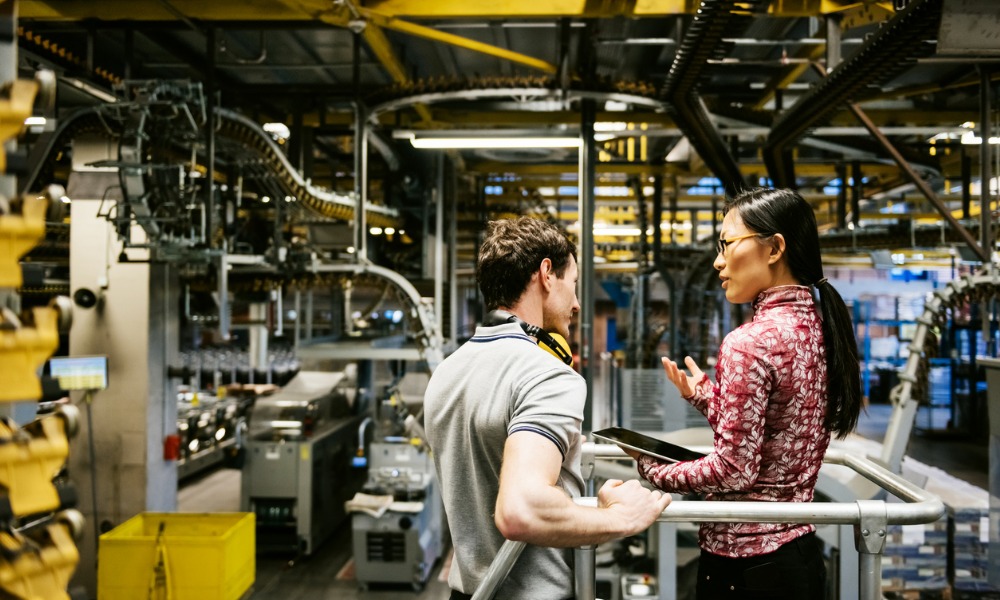'Digital transformation is no longer an option, it’s essential to remaining competitive'

Almost three-quarters (73 per cent) of Canada’s industrial companies expect to invest less than five per cent of annual revenue on digital technology, according to a KPMG report.
The report found:
- just half (50 per cent) of employers are investing in digital technology to create a competitive edge
- the vast majority (80 per cent) expect a return on investment (ROI) in three years or less, with a bit more than two in five (41 per cent) looking for returns in two years
- only 34 per cent believe digital transformation will require a significant hiring of new talent
- less than half of employers (45 per cent) feel they are in a good position relative to their peers when it came to digital implementation
- 60 per cent are concerned about cyber security risks.
“Companies have significant digital ambitions and high expectations for returns on investment, but their level of investment is too modest and, at times, too linear,” says Stephanie Terrill, KPMG’s national leader of its management consulting practice. “To truly move the dial, companies need to do more than make incremental investments to build digital capabilities; they need to build a modern digital foundation for a great leap forward.
KPMG surveyed C-suite leaders at 165 companies across Canada in the manufacturing, mining, oil and gas, power utilities, construction, transportation and infrastructure industries.
“Digital transformation is no longer an option, it’s essential to remaining competitive,” says Terrill. “[Employers] need to at least double, if not triple, their investments.”
Another recent report showed that only 14 per cent of those questioned have a formal digital transformation strategy in place, despite many believing they need a “breakthrough in leadership development.”
More could be done
While mining and energy companies already use digital technologies — such as self-driving trucks to haul ore or integrated sensors to monitor pipeline, machinery or equipment integrity — more could be done, according to KPMG. Industrial companies need to capitalize on the benefits from new exponential technologies, such as robotics, machine learning, machine-to-machine (M2M) communication, and the Internet of Things (IoT), says the report.
Companies are overlooking quick wins that are comparatively easy to implement, such as cloud services, while others struggle to achieve the integration needed to realize the full potential of data, says KPMG. As well, many seem to have dismissed the opportunities and insights that big data can offer. The survey findings revealed that only one in five (21 per cent) are actively leveraging data analytics.
Robotics and M2M capabilities can speed up production, while IoT facilitates predictive maintenance, reduced downtime and costs and it provided greater visibility into production and delivery, says the report.
“Companies should already be investing in IoT-compliant technology, especially to connect their legacy equipment,” says KPMG’s Yvon Audette, COO, management consulting services. “It’s fast becoming a baseline requirement for companies in these capital asset-intensive sectors; those that fail to invest in IoT will quickly fall behind.”
Although slow in the past to invest in digital technologies, close to half of the industrial companies surveyed by KPMG planned to implement intelligent automation and IoT technologies within the next three years.




